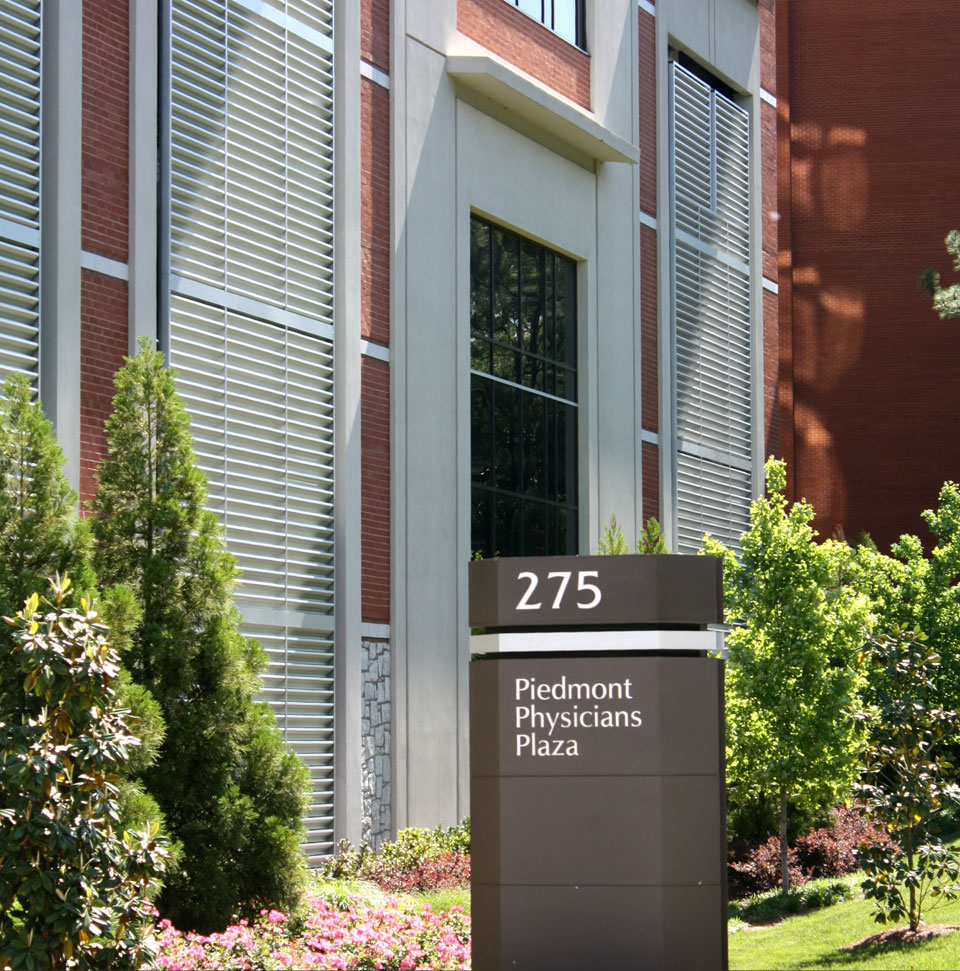Medical Services
At Piedmont OB-GYN, we provide comprehensive preventive care for women beginning at puberty and continuing through all stages of life. We listen carefully to our patients to determine any underlying health issues and work together to create specific, individual wellness and treatment plans. Our routine services include:
- Pelvic Exams
- Pap Smears
- Breast Exams
- Ultrasounds
- Osteoporosis Screening
- Birth Control
- Digital Mammography
- Vaccinations
We work closely with some of Atlanta's premier specialists including internists, perinatologists (maternal fetal medicine), reproductive endocrinologists, oncologists, dermatologists, gastroenterologists, etc. so we can make the right referrals, when necessary, to ensure our patients receive the finest care possible.
FAQs
What is a Pelvic Exam?
The physician examines the external genitals (vulva and perineum), the vagina and the cervix with a speculum, and the uterus and the ovaries to determine overall health. This is recommended annually.
What is a Pap Smear?
A pap smear is a simple screening procedure for cervical cancer and pre-cancer. The cervix is the opening of the uterus. During the routine procedure, cells from your cervix re gently scraped away and examined for abnormal cell growth. Cervical cancer is caused by the Human Papilloma Virus (HPV). HPV is a common, sexually transmitted virus and usually has no symptoms or warnings. HPV testing may also be done with the pap smear.
When do I need a Pap Smear?
Your first pap smear should occur at age 21. However, please note we see patients in their teen years for routine gynecologic health screening, problems, and contraception.
Your doctor will advise you on the recommended frequency of pap smears based on your individual risk factors, though generally the pap smear will be done less than annually.
What is HPV?
HPV is the most common sexually transmitted infection (STI). HPV is a different virus than HIV and HSV (herpes). 79 million Americans, most in their late teens and early 20s, are infected with HPV. There are many different types of HPV. Some types can cause health problems including genital warts and cancers. But there are vaccines that can stop these health problems from happening.
Learn more about HPV from the CDC at www.cdc.gov/std/hpv/stdfact-hpv.htm.
What is the HPV vaccine and should I get it?
The HPV vaccine is safe and effective. It can protect against diseases (including cancers) caused by HPV when given in the recommended age groups. The CDC recommends HPV vaccination at age 11 or 12 years (or can start at age 9 years) and for everyone through age 26 years, if not vaccinated already.
Vaccination is not recommended for everyone older than age 26 years. However, some adults age 27 through 45 years who are not already vaccinated may decide to get the HPV vaccine after speaking with their healthcare provider about their risk for new HPV infections and the possible benefits of vaccination. HPV vaccination in this age range provides less benefit. Most sexually active adults have already been exposed to HPV, although not necessarily all of the HPV types targeted by vaccination.
At any age, having a new sex partner is a risk factor for getting a new HPV infection. People who are already in a long-term, mutually monogamous relationship are not likely to get a new HPV infection.
Learn more about HPV vaccine from the CDC at www.cdc.gov/std/hpv/stdfact-hpv.htm.
What is a Breast Exam?
As part of your routine exam, your doctor will gently manipulate your breasts to feel for any lumps or irregularities. She will also examine your breasts or unusual discoloration, dimples or puckering of the nipple.
How often should I perform Breast Exams at home?
The purpose of breast self-exams is to learn what your breasts feel like so you can notify your doctor of significant changes. We encourage our patients to perform breast self-exams at least once a month. Most women find these easiest to do in the shower or lying flat on their backs. Use a gentle rotating motion to feel your breasts and call your doctor if you feel any lumps or notice an external change such as discharge from the nipple, dimpling or puckering of the nipple, redness or scaliness.
What types of birth control are available?
There are a number of options available to women seeking to prevent pregnancy, although no method is 100 percent guaranteed. They include:
- Diaphragms
- Oral contraceptive pills, patches or rings
- Progesterone injections and progesterone implants (Nexplanon)
- Intrauterine devices (IUD)
- Sterilization
- “Natural” methods such as timing intercourse to avoid ovulation


